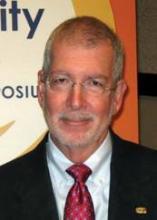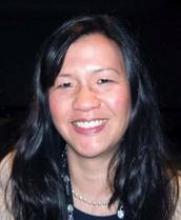SAN DIEGO – The aviation industry does it to ensure safe flights. The manufacturing industry does it to track its complex system of suppliers. The banking industry does it to view financial histories. Now, oncologists are using computer technology and complex systems management to pioneer improvements in the quality and efficiency of cancer care.
The goal is a health care system that aligns science, informatics, incentives, and culture so that new knowledge is captured as an integral by-product of delivering health care, Dr. Allen S. Lichter said at a symposium on quality care sponsored by the American Society of Clinical Oncology (ASCO).
The project was influenced by the Institute of Medicine’s September 2012 consensus report, "Best Care at Lower Cost: The Path to Continuously Learning Health Care in America."
"Right now, as with most medical specialties, the majority of things we do are based on consensus or good solid hunches, not on solid, level 1 clinical trial evidence," said Dr. Lichter, ASCO Chief Executive Officer. An iterative, "learning" system should help fill those gaps by using real-time data to improve recommendations, he said.
The ASCO Cancer Learning Intelligence Network for Quality (Cancer LINQ) project is a first step to creating a "continuously learning" system. Another system, being developed by eviti Inc., aims to assimilate evidence-based data into clinical decision-making and treatment plans via a Web-based platform.
The eviti system incorporates existing guidelines and recommendations to provide clinical decision support, Dr. Yu-Ning Wong reported at the symposium. A recent pilot study used the eviti platform to process 596 treatment plans for patients with non–small cell lung cancer. The plans were submitted for preauthorization to seven insurers in 43 states between January 2011 and May 2012, said Dr. Wong, an oncologist at Fox Chase Cancer Center, Philadelphia.
Using the eviti system, the treatment plans were compared with a library of evidence-based standards drawn from multiple sources, including ASCO, the National Cancer Institute, the Food and Drug Administration, the American Society of Hematology, other organizations, and the peer-reviewed medical literature. For the 255 cases that matched an evidence-based regimen, the system issued a preauthorization code. The remaining 341 cases either were reviewed by a nurse (214 cases) or underwent a peer-to-peer review by an oncologist (127 cases), Dr. Wong said.
The nurse reconciled minor variances between the treatment plan and the evidence base in 132 cases, which then received preauthorization for treatment, and recommended a medically justified variance from recommended treatments in 82 cases, 76 of which were approved by payers. The oncologist reviewer convinced 23 treating oncologists to change to an evidence-based treatment plan, resulting in preauthorization. Medically justified variances were recommended in 49 cases, 46 of which were approved by payers. Another 55 treatment plans were neither evidence-based nor considered a medically justified variance by the reviewing oncologist, and were denied preauthorization.
In all, 91% of patients ended up with an evidence-based treatment plan (69%) or a recommendation for a medically justified variance (22%), and 89% of cases received a preauthorization code, Dr. Wong said.
Multiple reports in the literature suggest that 30%-40% of oncology treatments deviate from evidence-based standards, similar to the final 31% rate in the eviti study. It’s unclear whether decision-support systems such as eviti will reduce practice variations over time; clinician and administrator acceptance is under study, as is use of the system for other tumor types.
The Cancer LINQ project includes a decision-support feature similar to eviti’s, but also aggregates clinical data from any electronic health record system, assesses compliance with quality measures, and analyzes trends in treatments and outcomes, Dr. Lichter said. With a click, Cancer LINQ can generate a report on how a particular physician is meeting any of 10 measures in ASCO’s Quality Oncology Practice Initiative (QOPI) certification program.
Cancer LINQ is "the son or daughter of QOPI," with "the ability to measure quality in the oncology practice, measure outcomes, and report in real time and provide new methods for data exploration and hypothesis generation," he said. "We believe the real-time collection of quality and outcomes data will allow the system to learn," resulting in continuously and quickly updated recommendations.
"We do not have to write an interface between our system and every one of the dozen or so electronic health record [EHR] systems that are used in the oncology community," Dr. Lichter said. The Cancer LINQ prototype was able to grab and conform clinical data from four different EHR systems. Cancer LINQ also goes beyond EHRs and can accept billing data, pharmacy data, and imaging data.



